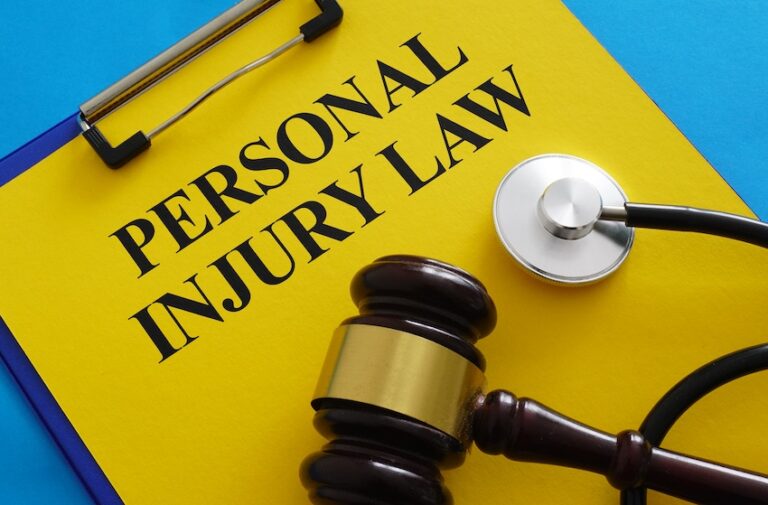Suing For Emotional Distress After a Car Accident in Georgia
Car accidents do not just cause physical injuries. Many victims also suffer emotional pain that lasts long after the crash. In Georgia, the law allows certain accident victims to seek compensation for emotional distress, including anxiety, depression, and post-traumatic stress disorder. Suing for emotional distress is possible, but the legal standards are strict.
In this blog, we explain how emotional distress claims work under Georgia law, the types of damages available, and why working with an experienced Georgia car accident attorney is important when seeking compensation for emotional suffering.
What Is Emotional Distress in the Context of Georgia Law?
Emotional distress is a legal term used to describe the mental suffering someone experiences after a traumatic event, such as a car accident. In Georgia, certain rules define when and how a person can claim emotional distress damages.
Emotional Distress Defined
Emotional distress consists of mental suffering caused by another person’s actions. It can include anxiety, depression, fear, grief, insomnia, and post-traumatic stress disorder. Accident victims may experience emotional trauma even if their physical injuries are minor. In severe cases, emotional distress can lead to long-term psychological conditions.
Emotional Distress and Georgia Law
Georgia law recognizes emotional distress as part of non economic damages in a personal injury claim. Under O.C.G.A. § 51-12-6, a person may recover damages for mental suffering when it results from a physical injury or in cases of intentional misconduct. This means emotional distress claims often rely on either negligent infliction or intentional infliction.
Negligent Infliction of Emotional Distress
To sue for negligent infliction of emotional distress in Georgia, a victim must meet the “impact rule.” This rule requires that the person was physically injured or impacted in some way during the incident. Without physical harm, most emotional distress cases will not qualify under this standard.
Intentional Infliction of Emotional Distress
Intentional infliction of emotional distress requires more than carelessness. The defendant’s actions must be extreme and outrageous. The person must have acted intentionally or with reckless disregard for others. If these conditions are met, a victim can pursue an emotional distress lawsuit even without a physical injury.
Common Signs of Emotional Distress
Emotional distress can appear in many forms. Victims may suffer from panic attacks, nightmares, difficulty concentrating, or mood swings. Some may require treatment from mental health professionals. Physical symptoms, such as headaches or stomach problems, can also result from serious emotional distress.
Emotional Distress and Car Accidents
Car accidents often cause more than physical injuries. Many victims suffer emotional pain long after their bodies have healed. Emotional distress caused by a car crash may involve flashbacks, fear of driving, or severe anxiety. In these cases, a car accident lawyer can help accident victims build a strong emotional distress claim backed by medical records and expert testimony.
Types of Emotional Distress Claims Recognized in Georgia
Georgia law recognizes two main types of emotional distress claims. Each type has different legal standards and requirements.
Negligent Infliction of Emotional Distress
Negligent infliction of emotional distress applies when the defendant causes harm through careless behavior. In Georgia, this type of claim usually requires physical impact. This is known as the impact rule. The victim must show that the defendant’s actions caused a physical injury or contact that led to emotional suffering.
For example, if a person is physically injured in a car accident and also suffers emotional pain, they may be able to claim emotional distress damages. However, if there is no physical harm, the court will likely dismiss the emotional distress claim. This rule limits emotional distress cases unless supported by physical injuries.
Intentional Infliction of Emotional Distress
Intentional infliction of emotional distress happens when someone acts on purpose or with reckless disregard for another person’s well-being. The defendant’s conduct must be extreme and outrageous. Hurt feelings or simple insults are not enough. The emotional distress must be serious and cause significant mental suffering.
A person may file an emotional distress lawsuit under this type if the behavior was intended to cause harm or was clearly beyond what society considers acceptable. Unlike negligent infliction, this claim does not require physical injuries. However, it does require strong evidence that the defendant acted intentionally.
Legal Importance of the Distinction
Understanding the difference between negligent and intentional infliction is important when suing for emotional distress. The type of emotional distress claim will affect what kind of evidence is needed and how the court will review the case. A car accident attorney can help determine which claim fits the facts and how to prove emotional distress in court.
Proving Emotional Distress After a Car Accident
To succeed in an emotional distress claim after a car accident, the victim must provide clear and credible proof of their emotional suffering.
Evidence of Emotional Distress
Emotional distress is invisible, so documentation is key. Accident victims should collect medical records that show diagnosis and treatment of mental health conditions. This may include anxiety, depression, panic attacks, or post-traumatic stress disorder. Testimony from mental health professionals can also support the claim.
A personal injury lawyer may use written statements, therapy notes, or expert opinions to show how the accident caused emotional trauma. In some cases, photos, videos, or journals may help demonstrate the impact on daily life and mental well-being.
Link Between the Accident and Emotional Harm
The emotional distress must be directly linked to the car accident. It is not enough to prove that the person is suffering. There must be a connection between the defendant’s actions and the emotional pain. For example, if the distress began right after the crash, medical records and witness statements should reflect this timeline.
The car accident lawyer must also show that the defendant’s behavior caused the mental suffering. If the defendant acted with extreme and outrageous conduct or was clearly at fault, this supports the case.
Common Forms of Emotional Distress
Emotional distress caused by a car accident can appear in many forms. Victims may struggle with fear of driving, flashbacks, social withdrawal, or severe anxiety. These symptoms can affect relationships, job performance, and physical health. Some people may also experience physical symptoms like headaches, fatigue, or stomach problems that come from mental anguish.
Role of Consistent Treatment
Regular treatment with mental health professionals strengthens an emotional distress case. Gaps in treatment or lack of documentation can weaken the claim. The court looks for consistency in care and proof that the person took the condition seriously.
Damages You Can Seek in an Emotional Distress Lawsuit
Victims who suffered emotional distress after a car accident may be eligible to recover several types of damages under Georgia personal injury law.
Non Economic Damages
Non economic damages cover emotional suffering that does not have a fixed dollar amount. These include mental anguish, emotional pain, loss of enjoyment of life, and severe emotional trauma. The value of these damages can vary widely depending on the severity of the emotional harm and how it affects daily life.
In Georgia, non economic damages are allowed in personal injury claims if the emotional distress is supported by evidence. Testimony from mental health professionals, personal journals, and behavioral changes can help show the true impact of the emotional injury.
Economic Damages
Some emotional distress cases also involve economic losses. These include the cost of therapy, medication, and other medical treatment. Accident victims may also claim lost wages if their emotional condition affects their ability to work. For example, someone suffering from post-traumatic stress disorder may miss work or be unable to return to their job.
Medical expenses tied to emotional distress must be supported by clear documentation. Bills, treatment plans, and records from doctors or counselors can help prove these costs.
Physical Symptoms and Medical Costs
Emotional distress can lead to physical symptoms such as fatigue, insomnia, or chronic headaches. If these symptoms require medical attention, victims may also recover the costs related to those visits. Georgia courts allow compensation for emotional distress when there is evidence of physical harm or the emotional trauma is severe.
Importance of Full Documentation
Strong emotional distress cases depend on full and consistent documentation. Every session with a therapist, every prescription, and every diagnosis supports the claim. Without this evidence, emotional distress damages are harder to prove.
Contact an Experienced Georgia Car Accident Lawyer Today!
If you or someone you care about has suffered emotional distress after a car accident, you do not have to face it alone. Emotional pain can be just as serious as physical injuries, and you have the right to seek fair compensation. At GMV Law Group, our experienced team understands how to build strong emotional distress claims backed by evidence, expert testimony, and a clear legal strategy.
Contact us at 404-445-8122 for a free case consultation today!




